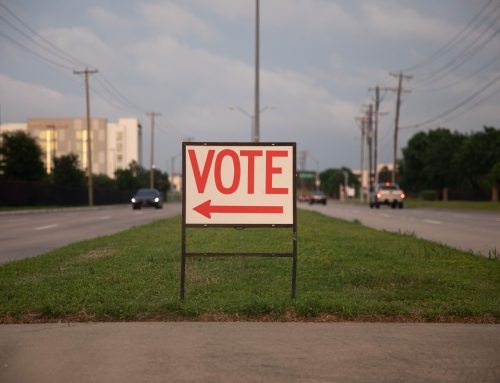“I still have nightmares after watching videos on gas chamber [animal] euthanasia,” Lakewood neighbor Shelby Bobosky says. But unlike most, who see something unbearable and look away, she decided to do something about it. In 2012, Bobosky quit her job as an attorney to work pro bono as the legislative chair for the Texas Humane Legislation Network (THLN), a nonprofit organization that promotes the humane treatment of animals through legislation, education and advocacy. Once she learned that up to 50 Texas shelters still euthanized around 20,000 cats and dogs each year in gas chambers, she spearheaded a bill to end the barbaric practice in 2013, requiring shelters to use more humane lethal injection techniques. So what keeps her going? Read our Q&A to find out.
How did you get involved?
I got involved in 2011. I helped in a puppy mill raid, and it really changed my life. I could not believe that the State of Texas at the time did not have any regulations for puppy mills. I was a bored attorney who hadn’t really found passion. I went and helped, and at the same time I was introduced to THLN, and I thought, “Wow, this organization effectuates change for thousands of animals. Wouldn’t that be great if we could put a law in place that regulated puppy mills?” I was extremely attracted to that idea, and so I got involved in the board. The legislative chair was getting ready to retire, so she took a backseat recently, and I’m taking over. I’ve loved it ever since.
Tell me a little about Texas Humane Legislation Network.
We are celebrating our 40th year anniversary. The mission is to promote the humane treatment of animals through legislation, education and advocacy. At the end of the day, our real focus is legislation. Every session, which is every other year, we look at every bill that comes up that relates to animals, and then we decide, “Do we want to track it? Is it a good bill? Is it a bad bill?” We try to determine if it’s something we want to support or oppose, or whether or not we want to send out an action alert to our members all over the state. If it’s something we support, we call our members and tell them, “Call your legislator and vote ‘yes.’” If it’s something we oppose, we tell them to call their legislator and say, “This is a bad bill,” and we give them the reasons why.
How has social media changed the organization?
Before social media, there were actually huge phone trees. So you’d get 20 people to call and then you’d ask each person to call 20 people. Social media nowadays can be a lightening rod for furthering your cause. Legislation happens really quickly. You could find out on Monday morning that a hearing is set for Wednesday. So social media helps to spread the word and get a message out there really quickly. Instead of phone trees, we just put a message on social media that says, “Please call your legislature and tell them the following three things…” and it’s great because in the comment section you can see, “Done,” or “The office says they’re already going to vote for it.” It’s unbelievable.
What really makes your blood boil?
Probably tethering. The tethering bill was one of those common sense bills, I think, brought by Rep. Kenneth Sheets (R-Dallas). That one really kills me because not a week goes by that I don’t get a picture of a dog on a chain, all over Texas. The purpose of the tethering bill is to provide food, water and shelter for animals that are outside 24/7. Whether that’s an animal in Wichita Falls, where it has been extremely cold, or a dog in South Texas that hasn’t had water in three days and it’s chained. That’s torture. So that’s one that we will bring back next session to try to pass. The City of Dallas has a wonderful tethering ordinance. We need something that covers the entire State of Texas because it’s the rural areas that really need our help. It’s not that you shouldn’t be able to tether at all, but if you’re going to tether make sure the dog has proper food, water and shelter. I just see so many pictures of dogs with these huge chains. I just can’t sleep at night without seeing these dogs. We will pass it next session, but unfortunately we have to wait two years to do that.
You live in Lakewood?
Yeah, and I must say: I love our East Dallas residents. They do such a phenomenal job with their dogs and with finding dogs and trying to get them back to their owners. We love our dogs and it shows. I wish we could be a model for other cities because I feel like East Dallas treats its pets like they’re family, and that’s how it should be.
You’re clearly an animal lover, so how do you do it? What drives you in such an emotionally taxing job?
It’s extremely difficult. There are horrible cases of animal cruelty out there, but seeing someone commit animal cruelty is not as bad as when you’ve seen commercial cruelty. When you have someone who says they just paid $800 for a dog, and now she says she’s turning it over to the shelter because it pees everywhere, that to me is the worst because it’s a part of that commercial cruelty that happens. So how do I convince that person? That keeps me up at night.





